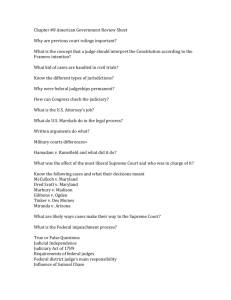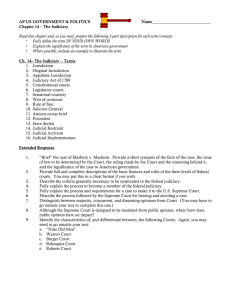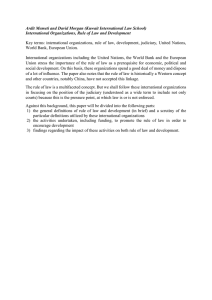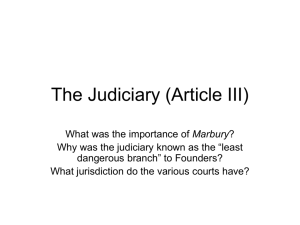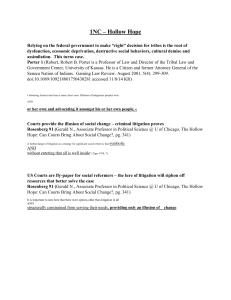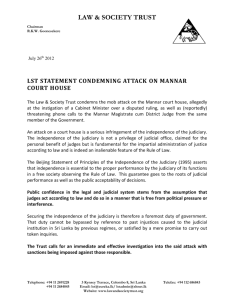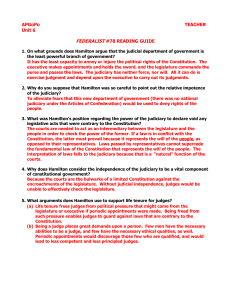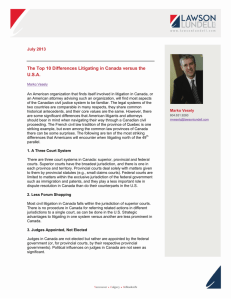Ethics of Representation of the Judiciary and Institutional and
advertisement
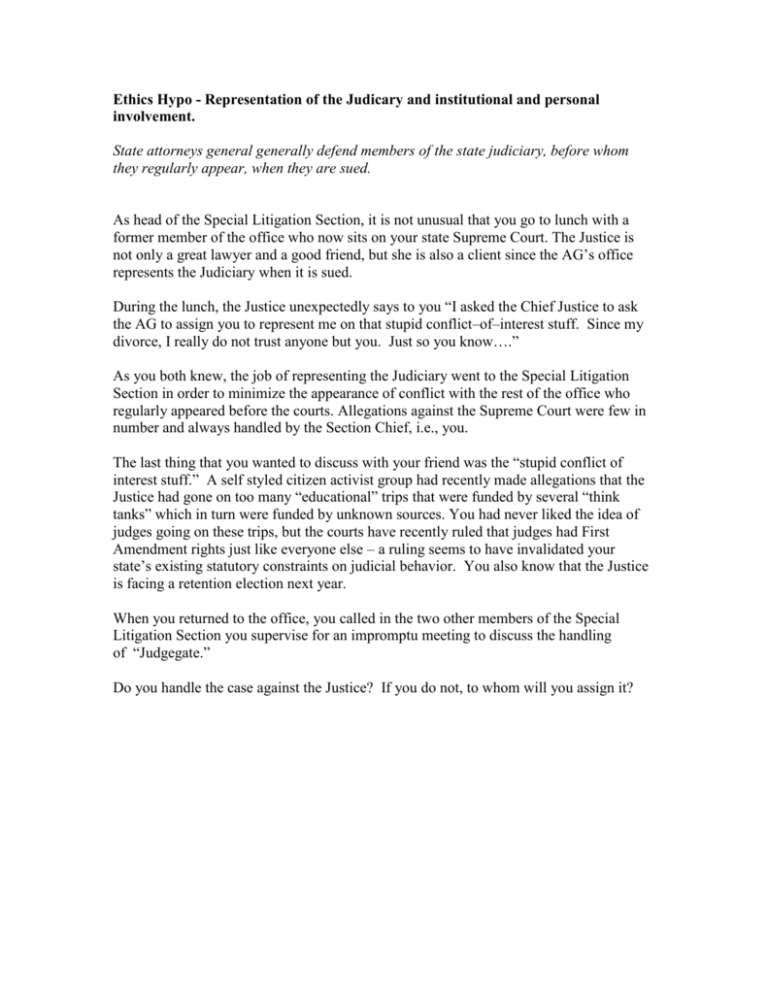
Ethics Hypo - Representation of the Judicary and institutional and personal involvement. State attorneys general generally defend members of the state judiciary, before whom they regularly appear, when they are sued. As head of the Special Litigation Section, it is not unusual that you go to lunch with a former member of the office who now sits on your state Supreme Court. The Justice is not only a great lawyer and a good friend, but she is also a client since the AG’s office represents the Judiciary when it is sued. During the lunch, the Justice unexpectedly says to you “I asked the Chief Justice to ask the AG to assign you to represent me on that stupid conflict–of–interest stuff. Since my divorce, I really do not trust anyone but you. Just so you know….” As you both knew, the job of representing the Judiciary went to the Special Litigation Section in order to minimize the appearance of conflict with the rest of the office who regularly appeared before the courts. Allegations against the Supreme Court were few in number and always handled by the Section Chief, i.e., you. The last thing that you wanted to discuss with your friend was the “stupid conflict of interest stuff.” A self styled citizen activist group had recently made allegations that the Justice had gone on too many “educational” trips that were funded by several “think tanks” which in turn were funded by unknown sources. You had never liked the idea of judges going on these trips, but the courts have recently ruled that judges had First Amendment rights just like everyone else – a ruling seems to have invalidated your state’s existing statutory constraints on judicial behavior. You also know that the Justice is facing a retention election next year. When you returned to the office, you called in the two other members of the Special Litigation Section you supervise for an impromptu meeting to discuss the handling of “Judgegate.” Do you handle the case against the Justice? If you do not, to whom will you assign it?
